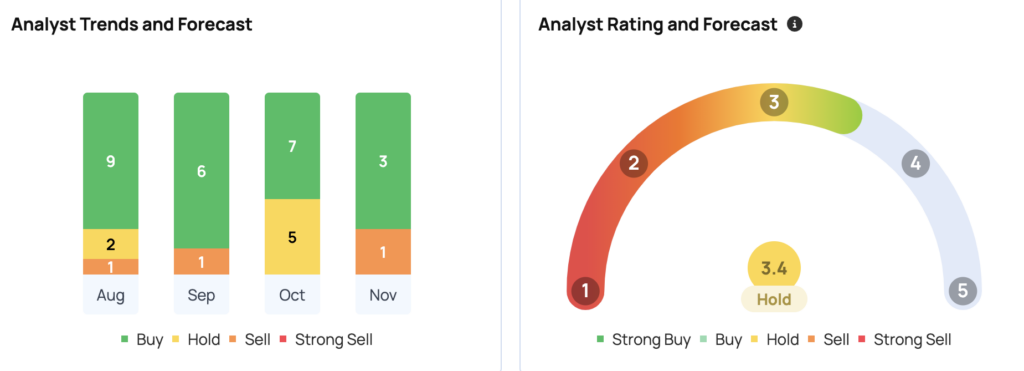Starbucks Corp. (NASDAQ:SBUX) workers have expanded their strike to additional U.S. cities amid stalled wage negotiations during the crucial holiday shopping period, potentially affecting the coffee chain’s Christmas sales, according to Workers United union.
What Happened: The five-day strike, which began Friday, has spread from initial locations in Los Angeles, Chicago, and Seattle to include stores in New Jersey, New York, Philadelphia, and St. Louis, the union said in a statement Saturday. Workers in Columbus, Ohio, Denver, and Pittsburgh are also participating in the walkout, reported Reuters.
At the heart of the dispute is Workers United’s proposal for substantial wage increases, including an immediate 64% rise in minimum hourly wages and a 77% increase over a three-year contract period. Starbucks has called these demands “unsustainable” and maintains that the strike has not significantly impacted its operations, noting that only a small fraction of its more than 11,000 U.S. locations are affected.
Why It Matters: The strike comes at a critical time for Starbucks, which employs approximately 200,000 workers across its U.S. operations. While negotiations between the company and the union began in April, with over eight bargaining sessions leading to 30 agreements, key issues regarding wages, staffing, and schedules remain unresolved.
Workers United has warned that the strike could expand to “hundreds of stores” by Christmas Eve, potentially disrupting one of the busiest retail periods of the year.
Despite these labor challenges, Wall Street maintains a generally positive outlook on the company. Wells Fargo analyst Zachary Fadem, who holds an 86% accuracy rating according to Benzinga, recently maintained an Overweight rating on Starbucks with a price target of $115, suggesting over 12% upside potential.
The current consensus price target among 28 analysts covering Starbucks stands at $103.85, with estimates ranging from Jefferies’ low of $76 to Evercore ISI Group’s high of $120.

Read Next:
Image Via Shutterstcok
Disclaimer: This content was partially produced with the help of AI tools and was reviewed and published by Benzinga editors.









